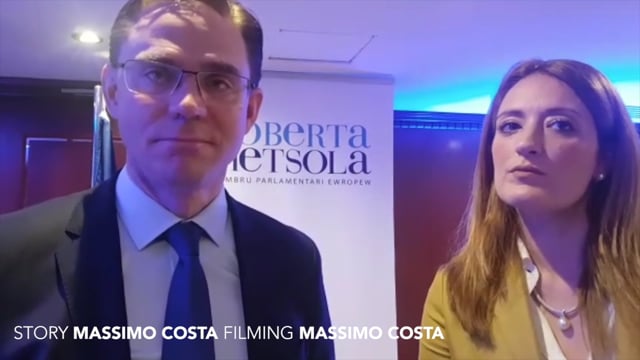[WATCH] No EU tax harmonisation anytime soon - European Commission vice-president
European Commission vice-president Jyrki Katainen said that the EU won’t move for tax harmonisation in the near future, since this would require member states' unanimous agreement


Tax harmonisation in the European Union doesn’t appear to be on the horizon, the European Commission’s vice-president said.
In comments to MaltaToday following a conference, organised by PN MEP Roberta Metsola, on EU investment plan opportunities for local businesses, Jyrki Katainen said that, according to the Union’s treaties, there has to be a unanimous decision amongst member states on the matter of tax harmonisation.
Consequently, the chances of measures to this effect coming into place in the near future are quite slim, he said.
“According to the EU treaties, taxation needs unanimity. If the EU wants to do take decisions on taxation, it requires member states’ unanimous approval,” Katainen underscored.
“Some member states and the Commission had raised some discussions on whether we should reconsider this, but I don’t believe that the treaties may be changed anytime soon,” he said.
“There are some understandable reasons why we should we more effective in matters of taxation - for instance regarding tax avoidance or artificial profit-shifting related issues - but many of these have already been addressed.”
“So I might personally consider some chances [of tax harmonisation] but I don’t believe it will happen anytime soon, due to the fact that the EU treaties identify very clearly that taxation always needs unanimous decision making,” he emphasised.
Malta will continue to work against tax harmonisation
Asked whether, considering that a majority of MEPs in the European Parliament had last year voted in favour of a common consolidated corporate tax base (CCCTB), Maltese Europarliamentarians - who are against tax harmonisation - could keep on resisting it, Metsola said that, with strong arguments, this would be possible.
“With robust arguments, we can continue to resist,” Metsola said, “And we would like to see more MEPs join us in our argumentation that a common corporate tax base would have negative spillover effects in the internal market, such as on the Maltese economy.”
The Maltese government must also persist with efforts in this regard, she said.
“[We have to fight against tax harmonisation] not solely in the European Parliament. The Maltese government, within the Council of Ministers and the European Council, has to also continue to make its case effectively - as we have always done since EU membership - that removing the exclusive competence of member states in this area would have a disproportionately negative effect on Malta.”
Reduction in EU budget and increased contributions after Brexit
When it comes to the effect on EU funding which the United Kingdom's withdrawal from the Union would have, Katainen said that the bloc's overall budget would have to be reduced, come Brexit.
Britain contributed close to €12 billion a year to the EU budget, he pointed out.
“Currently the proposal on the table which the Commission has made is mid-way between budget reduction and increasing contributions,” he said, “We are reducing the budget, but at the same time asking for some more contribution from net contributors in order to cover areas such as migration issues, border security, expanding the Erasmus+ exchange programme and to concentrate more on defence and security cooperation.”























